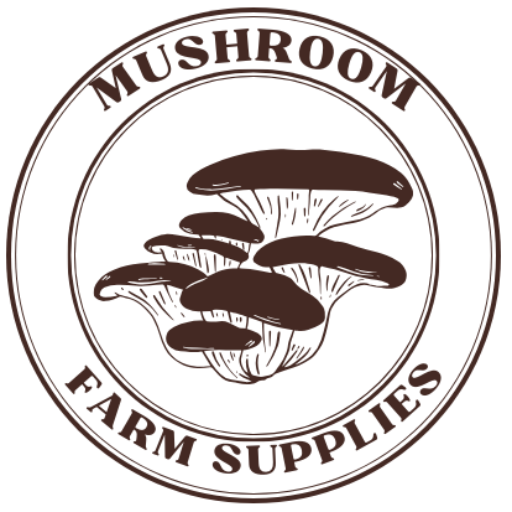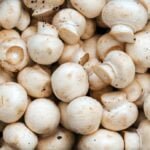Lion’s Mane Mushroom Sydney
Are you looking for Lion’s Mane Mushroom Sydney ?, the Lion’s Mane mushroom is emerging as a topic of interest for health enthusiasts, chefs, and urban farmers alike. Known scientifically as Hericium erinaceus, Lion’s Mane is not only appreciated for its unique culinary characteristics but also for its potential health benefits. This comprehensive guide will explore everything you need to know about Lion’s Mane in Sydney, from its cultivation and local availability to its uses in the kitchen and potential health impacts.
Understanding Lion’s Mane Mushroom
What Is Lion’s Mane Mushroom?
 Lion’s Mane mushroom, known scientifically as Hericium erinaceus, is a unique fungus celebrated for its distinct appearance and myriad of health benefits. Resembling a white pom-pom or the mane of a lion, this mushroom is characterized by its long, flowing, white spines. Unlike other mushroom species, it doesn’t have the usual cap and stem structure; instead, it grows in globular masses with cascading icicle-like spines.
Lion’s Mane mushroom, known scientifically as Hericium erinaceus, is a unique fungus celebrated for its distinct appearance and myriad of health benefits. Resembling a white pom-pom or the mane of a lion, this mushroom is characterized by its long, flowing, white spines. Unlike other mushroom species, it doesn’t have the usual cap and stem structure; instead, it grows in globular masses with cascading icicle-like spines.
In the wild, Lion’s Mane is typically found growing on hardwood trees, such as oaks and beeches, preferring wounded or dead trees where it can consume the wood as a source of nutrients. In the area around Sydney, it might be found in cooler, temperate forests, particularly those with a good supply of older trees and sufficient moisture.
Historical And Modern Use
Traditional Use in Eastern Medicine: Lion’s Mane has a storied history in traditional Chinese and Japanese medicine, where it has been used for centuries. Ancient healers prescribed it for digestive problems and to strengthen the immune system. However, its most notable traditional use is as a tonic for the brain and nerves. It was believed to improve memory, focus, and overall cognitive function, making it highly valued among monks and scholars.
Recent Interest and Studies in the Western World: In recent years, Lion’s Mane has caught the attention of the Western world, largely due to its potential neuroprotective properties. Modern scientific research is exploring its effects on nerve growth factor (NGF), a protein crucial for the survival and function of nerve cells. The mushroom contains unique compounds, hericenones and erinacines, which have been found to stimulate the production of NGF and potentially aid in the regeneration of brain cells.
Studies are also examining its impact on cognitive disorders such as dementia and Alzheimer’s, mental health issues like depression and anxiety, and its overall effect on cognitive function and neurological health. Additionally, research is delving into its immune-boosting, anti-inflammatory, and antioxidant properties, expanding the potential health benefits of this fascinating mushroom.
The interest in Lion’s Mane Mushroom Sydney and beyond, as more people seek natural ways to enhance cognitive function and overall health. Whether through supplements, culinary use, or traditional remedies, Lion’s Mane is increasingly recognized as a valuable addition to health and wellness routines, reflecting a broader interest in functional foods and natural health products. With ongoing research and a growing number of devotees, Lion’s Mane stands out as a mushroom with both a rich history and a promising future.
Culinary World Of Lion’s Mane Mushroom Sydney
Lion’s Mane mushroom is making a notable mark in Sydney’s diverse and vibrant culinary scene. Known for its unique taste and texture, it’s not only a health food but also a gourmet ingredient that adds a special touch to various dishes.
Flavor Profile and Culinary Uses
Describing the Taste and Texture of Lion’s Mane: Lion’s Mane mushroom has a flavor profile that’s often likened to seafood, particularly crab or lobster. It’s mild, slightly sweet, and savory, making it a versatile ingredient in the kitchen. The texture is meaty and tender, and when cooked, it becomes slightly chewy, similar to seafood, which is why it’s sometimes used as a vegan substitute in seafood dishes.
How Lion’s Mane is Used in Sydney’s Culinary Scene: In Sydney, where culinary innovation is always welcome, Lion’s Mane is being incorporated into a variety of dishes. Chefs are using it in vegan and vegetarian cuisine as a meat or seafood substitute due to its hearty texture. It’s also being featured in traditional dishes where mushrooms are the highlight, showcasing its unique flavor and health benefits. From fine dining restaurants to health-conscious eateries, Lion’s Mane is gradually becoming a familiar name in the menu listings.
Recipes and Cooking Tips
Sharing Popular Lion’s Mane Recipes:
- Lion’s Mane Crab Cakes: Mimicking the texture and taste of traditional crab cakes, these are made using shredded Lion’s Mane, herbs, and breadcrumbs, pan-fried until golden.
- Lion’s Mane Mushroom Risotto: Incorporating the mushroom into a creamy risotto enhances the dish with its lobster-like flavor and provides a satisfying, gourmet experience.
- Stir-Fried Lion’s Mane: Quick and easy, stir-frying Lion’s Mane with vegetables and a sauce of choice highlights its versatility and ability to absorb flavors.
Best Practices for Cooking and Storing:
- Preparing Lion’s Mane: Before cooking, it’s essential to clean the mushroom gently to remove any debris. They don’t usually need washing, but if you do, ensure they are dried thoroughly as they can soak up water and become soggy.
- Cooking Lion’s Mane: To bring out the best texture, Lion’s Mane should be cooked until the edges are slightly crispy. It can be sautéed, fried, or grilled. Its mild flavor makes it great for absorbing the flavors it’s cooked with, so consider using aromatic herbs, spices, or sauces.
- Storing Lion’s Mane: Fresh Lion’s Mane should be used as soon as possible, but if you need to store it, keep it in a paper bag in the refrigerator to maintain its texture. It can also be dried or frozen for longer storage, but this might alter its texture slightly.
In Sydney, as in many cities around the world, the culinary possibilities of Lion’s Mane are just beginning to be explored. Its unique taste and texture, combined with its health benefits, make it an exciting ingredient for chefs and home cooks alike. As more people discover this delightful mushroom, it’s sure to carve out a special place in Sydney’s culinary culture. Whether in sophisticated restaurant dishes or simple, healthy home cooking, Lion’s Mane is a mushroom that offers something for everyone to enjoy.
Finding Lion’s Mane Mushroom Sydney
Local Markets and Stores
Where to Find Fresh or Dried Lion’s Mane in Sydney:
- Health Food Stores: Many health food stores in Sydney have begun stocking Lion’s Mane due to its rising popularity. These stores might offer it fresh, dried, or in supplement form.
- Farmers’ Markets: Local farmers’ markets are a great place to look for fresh, locally grown Lion’s Mane mushrooms. Vendors there can provide insights into how the mushrooms were grown and might even offer tips on how to cook them.
- Specialty Asian Markets: Given its use in traditional Asian cuisine, some Asian markets may carry fresh or dried Lion’s Mane mushrooms.
- Online Suppliers: Numerous online suppliers deliver fresh or dried Lion’s Mane mushrooms right to your doorstep. This is a convenient option if you’re looking for specific types or quality guarantees.
Recommendations for Local Health Food Stores, Markets, and Online Suppliers:
- The Sydney Organic Markets: Known for a wide range of organic produce including specialty mushrooms.
- Honest to Goodness: A popular online store that offers organic and natural foods, including dried Lion’s Mane mushrooms.
- The Cruelty-Free Shop: While primarily a vegan shop, it sometimes stocks products related to gourmet mushrooms and supplements.
- Doorstep Organics: Another online option offering delivery of organic and healthy food including mushrooms.
Foraging Lion’s Mane
Potential for Foraging in the Sydney Region: Foraging for Lion’s Mane can be an exciting and rewarding experience if done correctly and safely. Sydney’s surrounding areas, with their diverse ecosystems, might offer opportunities to forage for these mushrooms, especially in temperate forest areas with old-growth trees.
Safety and Ethical Considerations for Wild Mushroom Foraging:
- Go with an Expert: Never forage alone if you’re inexperienced. Always go with someone knowledgeable about local mushroom species to avoid picking poisonous look-alikes.
- Know the Laws: Be aware of foraging laws in Sydney and surrounding areas. Some regions may have restrictions or require permits for foraging.
- Sustainable Foraging: Practice ethical foraging by taking only what you need and leaving the ecosystem as undisturbed as possible.
- Identification: Make sure you’re 100% certain of the mushroom’s identity before consuming. When in doubt, leave it out.
In Sydney, whether you’re buying Lion’s Mane from a local market or venturing out to forage for it, this unique mushroom is becoming more accessible to those interested in its culinary and medicinal properties. By exploring local stores, markets, or the natural surroundings, you can enjoy the distinct taste and health benefits of Lion’s Mane. As with all wild foraging, safety, legality, and sustainability should be your top priorities to ensure a positive and responsible experience.
Sustainability and Future Prospects
Environmental Impact and Sustainability
Discussion on the Eco-Friendly Nature of Mushroom Cultivation: Mushroom cultivation, including that of Lion’s Mane, is renowned for its minimal environmental footprint. Mushrooms require less land, water, and energy compared to traditional crops, making them an attractive option for sustainable agriculture. They can be grown vertically in urban environments, significantly reducing the need for extensive farmland. Additionally, mushrooms can be cultivated on a variety of substrates, often utilizing agricultural by-products or waste materials, contributing to a circular economy and waste reduction.
Role of Lion’s Mane in Sustainable Urban Farming Initiatives in Sydney: In Sydney, urban farming initiatives are gaining traction as more people seek local, sustainable food sources. Lion’s Mane can play a pivotal role in these urban agriculture projects due to its adaptability and low resource requirements. Its ability to be cultivated indoors or in small spaces makes it ideal for urban environments. By integrating Lion’s Mane into these urban farming initiatives, Sydney can reduce its food miles, promote local biodiversity, and offer residents access to fresh, nutritious produce.
Innovations and Ongoing Research
Latest Advancements in Lion’s Mane Cultivation and Use: As interest in Lion’s Mane continues to grow, so do innovations in its cultivation and application. Techniques in mycology are continually evolving, leading to more efficient and sustainable ways to grow Lion’s Mane, even in challenging environments like urban centers. In the culinary world, chefs and food scientists are experimenting with Lion’s Mane, creating new and exciting dishes that highlight its unique flavor and texture.
Future Prospects in Health, Nutrition, and Gastronomy: The potential health benefits of Lion’s Mane are a significant area of ongoing research. Studies are exploring its impact on neurological diseases, mental health, immune function, and more. As these studies progress, Lion’s Mane may become a more prominent feature in dietary supplements, functional foods, and holistic health practices. In the realm of nutrition and gastronomy, its versatile culinary applications are only beginning to be fully explored. As awareness of its flavor profile and health benefits increases, Lion’s Mane is set to become a staple in kitchens and restaurants around Sydney and beyond.
Lion’s Mane mushroom represents a convergence of sustainability, health, and culinary innovation. As Sydney continues to embrace sustainable urban farming and a health-conscious lifestyle, Lion’s Mane offers a promising path forward. Its cultivation and use embody a commitment to environmental responsibility, community well-being, and the ongoing pursuit of knowledge. With each advancement in cultivation techniques and each new discovery about its health benefits, Lion’s Mane stands as a symbol of a future where food is sustainably produced, nutritionally rich, and intrinsically connected to the health of both people and the planet.




